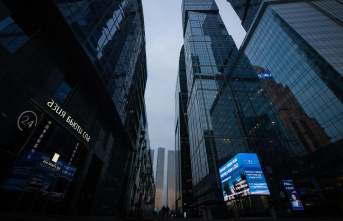the European Union is The second economic power worldwide, with a combined GDP in 2018 18.7 billion dollars —according to data from the IMF— behind with 21.4 of the united States, and before 14.1 of China. However, the powerful european single market of 513 million people (the that there will soon be that you subtract 66 million citizens and 2.8 trillion of GDP british) do not have corporate giants at the height of its size. Data published by the Economics section of this journal this week suggest that the EU only has four of the largest 50 global companies by market capitalisation (the signature of luxury French LVMH, the oil company Royal Dutch Shell, the technological German SAP and the cosmetics gala L'oréal). USA has 31; China, eight.
The deficit of the titans of business cause growing concern in broad sectors of the european policy. A group of 19 member States called on December, 2018 and to amend eu competition law to facilitate the formation of industrial giants, able to cope with the fierce competition of USA and China. In February of 2019, the refusal of the European Commission to give the green light to the merger between the German Siemens and French Alstom unleashed a serious political pulse between Brussels and the Executives of Berlin and Paris.
From one side of the dispute, it is argued that the scale is necessary to be able to fight effectively in the global market; from the other, it argues that the scale can not be obtained at the expense of competition.
OTHER ARTICLES IN THE SERIES ‘THE COMPASS EUROPEAN’
Trump, Johnson, Putin, Erdogan: EU is surrounded by adversaries, The Mediterranean incubated hurricanes politics; Russia and China ride the waves to Be point or be eat There are islamic threat, yes. But also islamophobia and anti-semitism, The EU sees a tunnel at the end of the light Putin 2007, Macron 2019 faults in the engine the franco-German EU Thirty years later, a curtain of moral divides Europe Have you lived in the EU in its heyday? Brexit, Poland and Hungary: the struggle of the cities against the nacionalpopulismoMargrethe Vestager —responsible for Competition both in the commission of the previous president Juncker as well as in the current Von der Leyen— thus he defended his arguments in a conversation held in Strasbourg in mid-December with a small group of journalists: “In the internal market there is no prohibition of success. The growth of the companies is very welcome and can be dominant in a market. What is not accepted is buy monopoly, buy the peace and quiet of not being challenged. The competition is important because it gives citizens affordable prices and stimulates innovation. In the case of Siemens/Alstom, a large part of that merger does not give problems, but there were two markets that with such a merger remained without alternatives: the signaling of railway lines of new generation and the construction of high-speed trains,” said Vestager, who is the vice president of the Commission.
The Danish policy, however, has initiated two reforms that can address the concerns that were widespread. “On the one hand we are reviewing the procedure of market definition”. Many decisions of law-antitrust-are based on the definition of what it is the market of reference. The european protocol dates back to 20 years ago.
on the other hand, Brussels is studying a revision of the mechanisms of control over foreign companies that have State aid on the internal market. “It is true that in the operations in the internal market and of companies directly or indirectly controlled by public companies to foreign there is an imbalance and that there are risks associated to it,” says Vestager. “The member States are subject to clear rules, but there is no regulation as to foreign States. We are on it. There has been an inspiring proposal Dutch, we have in mind, but we still don't have ready the instrument. The issue is that we need a regulation that not only present well, if not that it is implementable”. It is one more chapter in the multi-task of adaptation of the EU to the challenges of a TWENTY-first century that produces rapid changes and unsettling.
Date Of Update: 04 January 2020, 01:00










